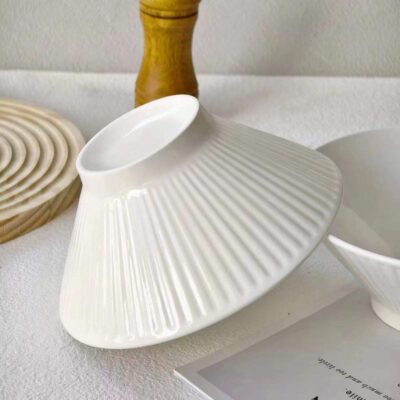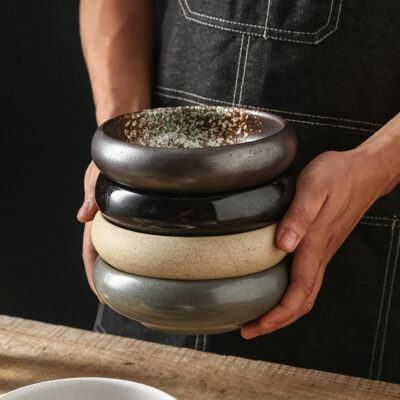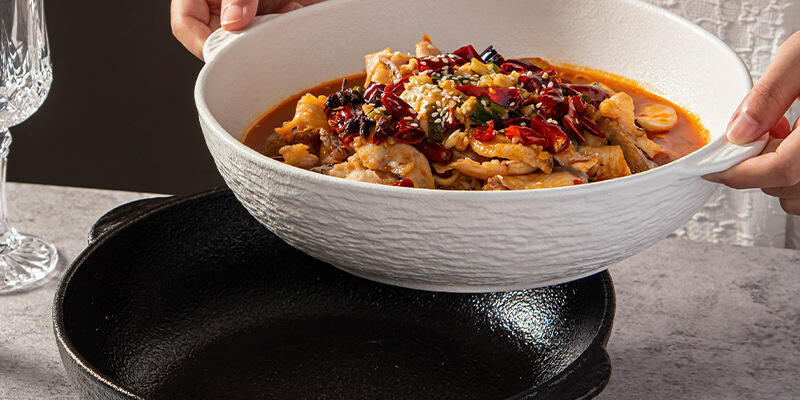In the hospitality industry, presentation and sustainability matter as much as function. Wooden salad bowls have gained popularity in restaurants, hotels, and catering because they combine a natural aesthetic with practical durability. However, choosing the right wooden bowls for commercial use requires understanding food-safe finishes, compliance with regulations, and proper care.
This article will help buyers evaluate wooden salad bowls and identify the right wholesale suppliers for professional dining environments.
1. Why Wooden Bowls Appeal to Hospitality
Wooden salad bowls bring a rustic yet refined look to dining settings. They are perfect for presenting:
-
🥗 Fresh salads
-
🍇 Fruit assortments
-
🍞 Bread or dry side dishes
Their natural grain patterns make each bowl unique, offering guests a dining experience that feels warm and authentic. Hotels and restaurants often use wooden bowls to enhance sustainability messaging, as wood aligns with eco-conscious branding.
2. Food-Safe Finishes
One of the most important factors for hospitality buyers is ensuring that wooden bowls are coated with food-safe finishes. Finishes such as food-grade mineral oil or beeswax create a protective barrier while keeping the bowl safe for contact with fresh produce.
Avoid bowls coated with non-certified varnishes or lacquers, as they may release harmful substances into food. Reliable suppliers will provide compliance documentation to verify safety.
3. Care and Maintenance in Professional Kitchens
Wooden bowls require different care compared to ceramic or stainless steel:
-
Wash quickly with mild soap and water (avoid long soaking).
-
Dry immediately to prevent warping or cracking.
-
Reapply food-safe oil periodically to maintain the finish.
With proper care, wooden bowls can last for years in commercial use, making them a cost-effective investment for hotels and restaurants.
4. Compliance and Regulations
International hospitality buyers should confirm that suppliers meet standards such as FDA (USA), LFGB (Europe), or equivalent local food-contact regulations. Documentation is essential for importers and distributors. Choosing compliant bowls ensures safety for guests and reduces liability risks.
5. Partnering with Reliable Suppliers
Sourcing wooden bowls requires trust in both quality and supply consistency. Many businesses consolidate orders through Bowl Manufacturers to streamline procurement across multiple materials.
For wooden tableware specifically, working with specialized Wooden Bowl Manufacturers ensures access to food-safe finishes, customization options, and hospitality-grade durability.
6. Applications Across Hospitality Markets
-
Hotels: Buffet stations, salad bars, and in-room dining.
-
Restaurants: Premium presentation for fresh salads and fruits.
-
Catering Services: Stylish yet lightweight serving solutions.
-
Retail/E-commerce: Increasing consumer demand for eco-friendly, natural kitchenware.
Final Thoughts
The wooden salad bowl is more than a serving vessel—it represents sustainability, authenticity, and aesthetic value in hospitality. Buyers must prioritize food-safe finishes, compliance with food-contact standards, and supplier reliability when sourcing wooden bowls for professional use.
By partnering with experienced suppliers, hospitality businesses can deliver both safety and style to their guests, while reinforcing eco-conscious brand values.


















